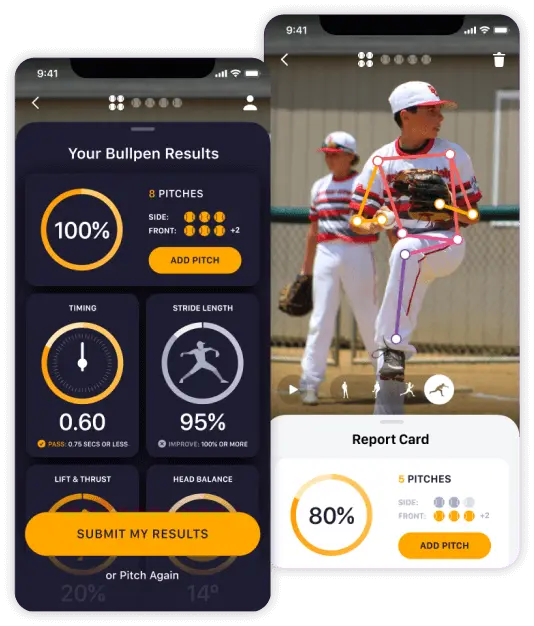IoT Development Services
The realm of Internet of Things (IoT) software development presents an expansive frontier, with its potential value forecasted to reach up to $12.5 trillion globally by 2030. This rising market is marked by significant variances in economic impact across different sectors, with industrial applications and healthcare systems poised to claim substantial portions of the overall value.
In industrial contexts, IoT application development could unlock between $1.4 trillion to $3.3 trillion by the end of the decade, representing over 25% of IoT's total economic promise. In the sphere of human health, IoT's contributions are expected to comprise around 14% of its full financial potential.
Types of IoT Software Development Projects We Support
There are three main categories of IoT development services we offer. They’re best described as follows:
Smart Product Innovation
This type of IoT software development involves enhancing products with connectivity and sensors, paving the way for the creation and launch of innovative products and services. It encapsulates the evolution of traditional offerings into smart, connected solutions that redefine user experiences.
IoT Hardware Development
This category of IoT development services focuses on the hardware side of IoT systems. It includes the development of IoT devices, IoT sensors, and IoT gateways.
Operational Transformation
IoT's role in digitizing operations can lead to substantial improvements in efficiency, quality, and safety. This transformative approach reimagines operational processes, leveraging the power of IoT development services to achieve new levels of operational excellence.
IoT-Driven Enterprise Creation
Beyond enhancing existing products and operations, IoT application development also offers the potential to establish entirely new business ventures. These can either complement a larger corporate ecosystem or stand as independent entities. In either scenario, it involves harnessing IoT to drive innovation and create new market opportunities.
Our IoT Development Services
Studio offers IoT development services that encompass a wide range of expertise, ensuring the delivery of robust, scalable, and secure IoT solutions. Our services include:
Strategic IoT Advisory
We offer our expert guidance as a leading IoT development company, on everything from concept to implementation. And it’s all tailored to meet specific business needs.
Innovative Prototyping
Developing prototypes with suitable hardware choices, including sensors, GPS, and RFID technologies, to validate concepts and refine strategies.
Intelligent Data Solutions
Crafting strategies for effective data collection, analysis, and security, ensuring the integrity and confidentiality of IoT-generated data.
Network Design & Device Management
Selecting and configuring the right IoT devices, ensuring seamless network integration, and providing ongoing monitoring and diagnostics.
Edge Computing Infrastructure
Building and managing edge computing setups to optimize data processing and analytics near the source, enhancing efficiency and responsiveness of IoT software development solutions.
Advanced Data Center Technologies
Designing data processing environments for diverse IoT data, incorporating machine learning algorithms for advanced data analysis.
Immersive Data Visualization
Creating diverse web and mobile apps, including VR/AR solutions, for insightful IoT data visualization. It’s all customizable for various user roles and requirements.
Smart Remote Control Systems
Designing sophisticated remote control applications, both web and mobile, integrated with IoT devices for seamless operation and enhanced security.
Rigorous Quality Assurance and Testing
Ensuring the IoT solution meets the highest standards through comprehensive testing, code reviews, and test automation.
Continuous IoT Support and Enhancement
Our IoT development services don’t stop at delivering the end product. We provide ongoing support to address IoT application issues, security assessments, compliance reviews, and introduce new functionalities to existing IoT solutions.
Industry Applications of IoT Software Development
IoT development companies like Studio are revolutionizing a wide array of industries, offering innovative solutions that range from consumer products to complex systems for global corporations and startups. Here’s a glimpse into how various sectors are harnessing the power of IoT application development:
Wearable Technology Development
Crafting wearable devices with advanced connectivity, extended battery life, and unique user experiences.
Healthcare IoT Innovations
An IoT development company can build solutions that enhance remote patient care and precise asset tracking through connected healthcare devices.
Manufacturing Efficiency Enhancement
Utilizing sensors and computer vision for improved process control and predictive maintenance in manufacturing.
Automotive IoT Integration
Advancing vehicle technology through IoT software development with sophisticated location tracking and connected fleet management systems.
Supply Chain Transparency
Achieving comprehensive visibility in logistics through satellite beacons and sensor-equipped warehouses.
Retail Revolution with IoT
Elevating customer knowledge with indoor location services, smart digital signage, and personalized advertising strategies.
Agricultural Advancements
IoT development services are being used to monitor environmental conditions for improved crop yields and integrate smart robotics for optimal harvesting.
Smart Home and City Solutions
Providing advanced control over intelligent devices in homes, then scaling up to community-wide smart city implementations.
Sports Performance Analytics
Implementing lightweight sensors for athlete tracking, IoT development companies can design solutions that aid in trauma prevention and strategic game management.
Key Considerations for Any IoT Application Development Project
In the evolving landscape of IoT software development, addressing several critical considerations is crucial for ensuring successful project outcomes. Integrating insights from diverse enterprise customer experiences, the following key steps are essential:
Robust Security Measures
With IoT ecosystems expanding organizational attack surfaces, prioritizing security from the outset is vital. An IoT development company should adopt a security-by-design approach and consult with security experts to ensure the protection of every solution layer.
Seamless Interoperability
Essential for smooth IoT system functioning, focusing on correct protocol utilization across various layers is crucial during IoT application development. This includes physical connections (like Bluetooth and WiFi), networking, and application protocols.
Scalable System Design
IoT systems should be capable of accommodating growing device numbers and data volumes. Strategies like cloud, edge, and fog computing, microservices architecture, and scalable databases facilitate this scalability.
Efficient Data Management
To handle large data volumes at high speeds, IoT development services should incorporate cloud and edge computing, along with AI and machine learning tools for data processing.
Clear Organizational Ownership
Successful IoT deployment requires assigning a clear IoT owner within the organization to lead a cross-functional team focused on building business value and designing solutions.
Designing for Scale
Grounding IoT development services in business outcomes and designing the architecture with at-scale solutions in mind is crucial to avoid the pitfalls of getting stuck in pilot phases.
Broad Use Case Implementation
Deploying multiple use cases simultaneously can prompt organizations to transform their operating models and workflows, enabling more effective value capture.
Investing in Technical Talent
Recruiting skilled personnel in IoT technologies is essential, including data engineers and scientists. Equally important is upskilling the existing workforce in data science.
Holistic Organizational Change
Beyond IT, the core operating model and workflow of the business must be redesigned to fully realize the potential of IoT.
Advocating for Interoperability
Encouraging vendors towards interoperability is essential for seamless integration of various IoT software development solutions and use cases. This enhances the overall impact and reduces costs.
Proactive Ecosystem Management
Actively shaping the IoT environment, prioritizing cybersecurity, and working with reliable suppliers are crucial for comprehensive risk management.
IoT Software Architecture
The effectiveness of any IoT development company hinges on their foundation of a well-structured IoT architecture. By meticulously analyzing your specific business objectives and technical prerequisites, we craft a tailor-made, scalable architecture suited to your unique IoT project.
Our Preferred IoT Technology Stack
Programming Languages
- C/C++ for high-performance and system-level programming
- Python, offering versatility and ease of use for IoT applications.
- Ruby, known for its simplicity and productivity
- JavaScript, ideal for full-stack development.
Frameworks
- Node.js, perfect for scalable network applications.
- IoT.js, dedicated to IoT device control and data handling.
- Device.js, facilitating device communication and management.
- React, providing a robust structure for web applications.
IoT Platforms
- Amazon Web Services IoT, offering extensive cloud capabilities.
- Microsoft Azure IoT, known for its enterprise-level solutions.
- Google Cloud IoT, integrating advanced analytics and machine learning.
- openHAB, an open-source platform for smart home automation.
Communication Protocols
- Wi-Fi.
- Cellular technologies including 2G, 3G, 4G, LTE, and 5G.
- MQTT, a lightweight messaging protocol.
- AMQP, supporting reliable and secure messaging.
Hardware Components
- Raspberry Pi, a versatile microcomputer for various applications.
- Arduino, ideal for building digital devices and interactive objects.
- Google TPU, designed for machine learning and neural network computations.
- FPGA controllers, providing high flexibility and performance.
Sensors and Interfaces
- Analog sensors for basic input and output functions.
- ADC (Analog-to-Digital Converters) for translating analog signals.
- 1-Wire interface, enabling communication with minimal wiring.
- RF433 modules, facilitating wireless communication over short distances.
Typical Roadmap for an IoT Development Effort
The journey of IoT development is intricate and multifaceted, requiring careful planning and execution. Here's a typical roadmap followed by an IoT development company like Studio:
1. Discovery Phase: Understanding Industry and Objectives
The first step of IoT application development involves immersing in your industry specifics and business goals to define the IoT software requirements. This leads to crafting a custom IoT solution architecture and a detailed implementation strategy tailored to your unique needs.
2. Strategic Planning: Laying the Foundation
The planning stage is critical - it’s where the entire IoT software development pathway is mapped out. It includes selecting the right tech stack and IoT platform, defining the development team structure, and setting realistic timelines for each phase to prevent scope creep.
3. Prototype Design: Shaping the Initial Vision
Our IoT experts develop a prototype or Minimum Viable Product (MVP) to gather early feedback. This phase of IoT software development is crucial for validating the product concept, design, and functionality at the outset.
4. Development Phase: Bringing the Concept to Life
The core development involves coding the IoT solution in line with the system requirements and chosen architecture. Focus areas include establishing the IoT platform, data storage and processing mechanisms, analytics features, and user interface design.
5. Integration and Testing: Ensuring Seamless Functionality
This stage encompasses integrating the IoT solution with existing infrastructure and third-party systems, followed by rigorous testing to meet functional, performance, and security standards.
6. Solution Launch: Deployment and Operationalization
After thorough validation, the IoT system is deployed in the chosen environment, ensuring its optimal performance and alignment with project goals.
7. Ongoing Support: Sustained Operational Excellence
Post-launch, our IoT development services continue with regular maintenance and support for the IoT solution. This ensures it remains operational, efficient, and updated with the latest advancements.
Relevant Experience
MysteryVibe
We created an app that controls the world's first bendable smart vibrator (Crescendo). The focus of our IoT development services was on creating a tactile app experience that allows users to create custom vibes and download vibes created by others. The companion app serves as a controller for the Crescendo device, which connects to a user’s phone via Bluetooth. The challenge given to our IoT development company was this: The app had to complement the hardware capabilities without placing too many demands on the user.
MGM
To reinvent MGM as a mobile-first hospitality brand, we redefined the check-in, event ticket purchasing and room access experience for millions of guests annually. Having grown by acquisition, MGM was operating multiple legacy systems across their 13 Las Vegas properties, each with their own customized tech stack. Integration with all of these systems through a middleware layer was a significant project challenge, requiring an innovative IoT software development approach. In addition, we worked with a hardware door lock manufacturer to allow for keyless room entry via a guest’s mobile device.
Appetize
Appetize has quickly become a leading, fully cloud-based point of sale (POS), digital ordering, and enterprise management platform trusted by the world’s highest-volume businesses. Their mission when they chose us as their IoT development company was to elevate the guest ordering experience while making operations more efficient and productive. As the technology hub for commerce, we helped Appetize connect all ordering technologies, including POS terminals, handheld devices, self-service kiosks, mobile and online ordering, with best-in-class application and technology integrations.


